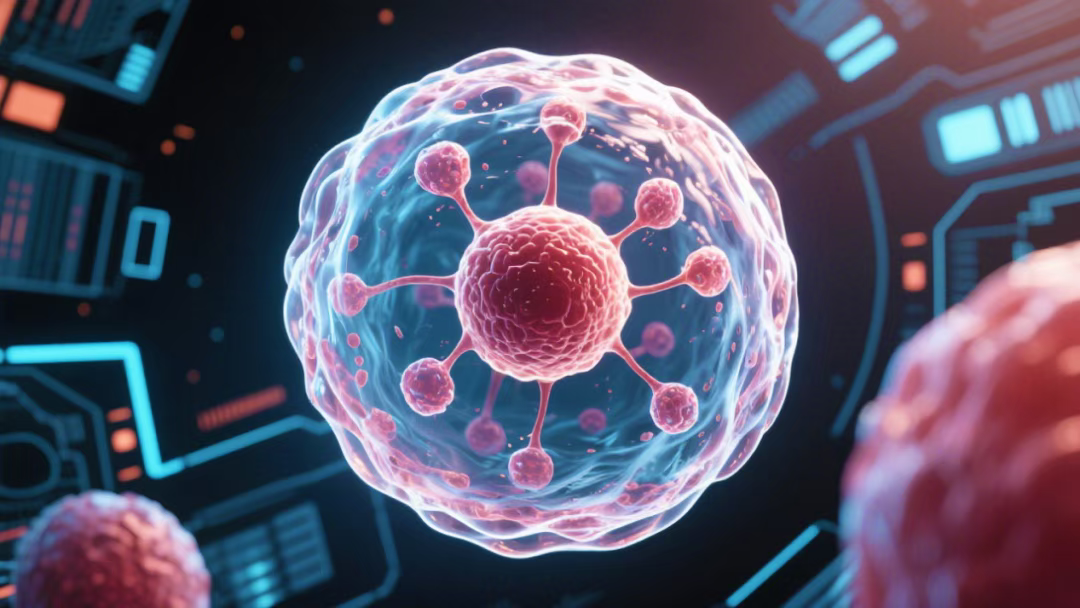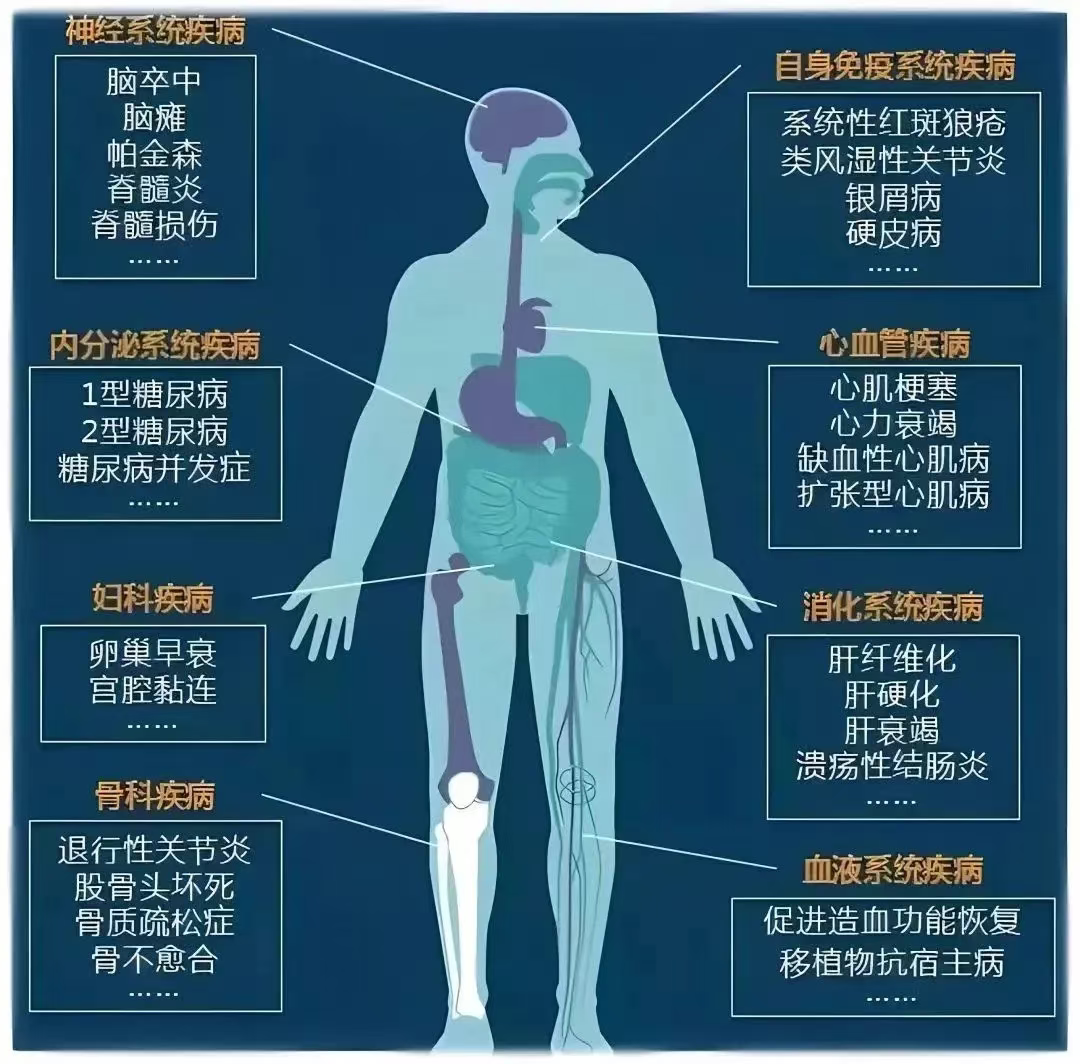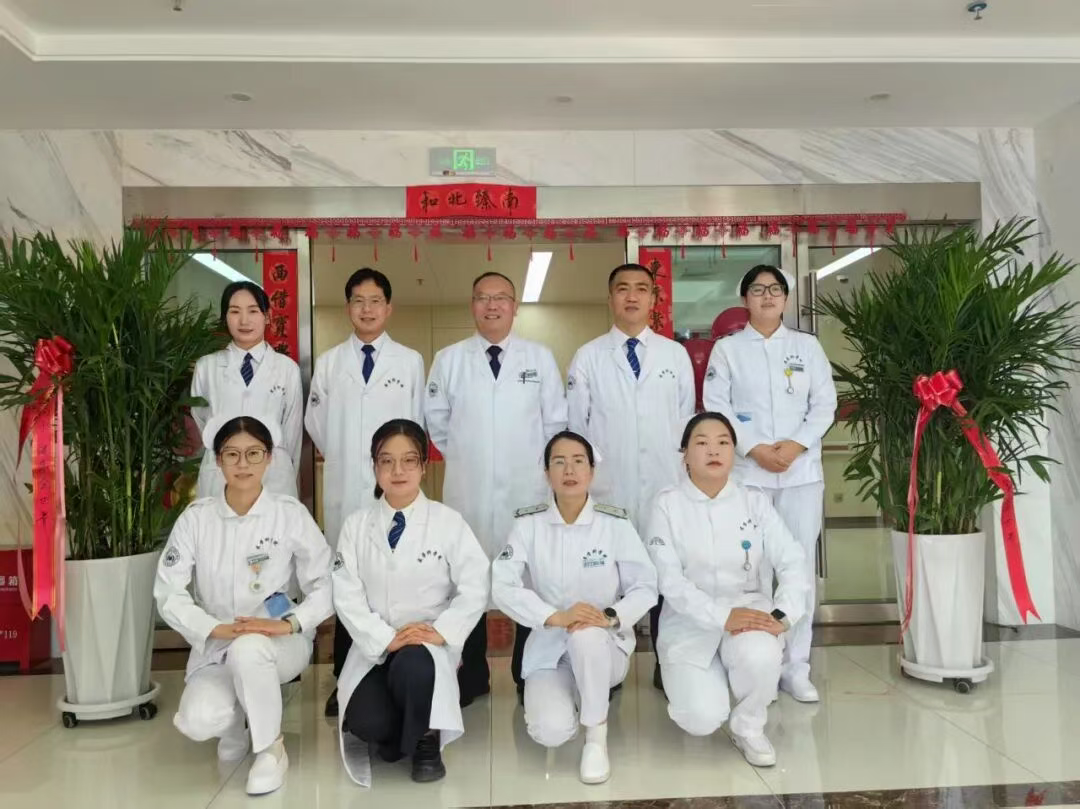Meet the Biological Cellular Immune "Warrior"—Mesenchymal Stem Cells!
Meet the Biological Cellular Immune "Warrior"—Mesenchymal Stem Cells!
Lanzhou Heavy Ion Center, Department of Hematology and Oncology
When it comes to the immune "warriors" in our bodies, many people first think of white blood cells that directly engulf pathogens or T lymphocytes that precisely target viruses. However, within the human immune system, there lies a special "regulatory warrior"—the Mesenchymal Stem Cell (MSC). It doesn't directly "charge into battle," but instead "coordinates and commands" to safeguard health!

01 Let You Understand What Mesenchymal Stem Cells Are
Mesenchymal Stem Cells (MSCs) are a type of pluripotent stem cell originating from the mesoderm. Unlike hematopoietic stem cells derived from the blood system, they are mainly distributed in perinatal tissues (such as the placenta, umbilical cord, etc.) of infants, and in adult dental pulp, adipose tissue, and other areas. They possess strong proliferative capacity and multi-directional differentiation potential, meaning they can differentiate into various cell types under suitable conditions. They also have low immunogenicity—they are considered "immunologically privileged cells," which means they are less likely to be "rejected" by the immune system when introduced into an allogeneic body. Furthermore, the cytokines and exosomes they secrete have functions such as promoting tissue regeneration and exhibiting anti-fibrotic activity. The continuous regeneration and functional maintenance of adult tissues in the human body primarily rely on mesenchymal stem cells, which are widely used in the treatment of various human diseases.
02 The "Superpowers" of Mesenchymal Stem Cells
The four major functions of mesenchymal stem cells are: tissue regeneration and organ repair, immunomodulation, anti-aging and microenvironment remodeling, and homing effects.
The "combat effectiveness" of mesenchymal stem cells is mainly reflected in two core capabilities:
01 Immunomodulation
· It acts like a "mediator" for the immune system: When there is an excessive immune response in the body (such as immune cells attacking the body's own tissues in autoimmune diseases, or a "cytokine storm" triggered by infection), it releases signaling molecules to inhibit the over-activation of immune cells like T cells and B cells, preventing "friendly fire" and keeping the immune response within a reasonable range.
02 Tissue Repair
· It is also a "repair assistant" for damaged tissues: When tissues such as bone, cartilage, or nerves are damaged due to injury or disease, mesenchymal stem cells can secrete various nutritional factors, awakening dormant repair cells in the vicinity and promoting regeneration at the damaged site. For example, they help repair cartilage in the treatment of osteoarthritis and aid in the recovery of neurological function in spinal cord injury research.

03 Clinical Applications of Mesenchymal Stem Cells
Treatment involves 8 major systems and over 100 different diseases.
Various clinical trials and expanded studies have proven the safety and efficacy of this therapy. It covers the respiratory system (pneumonia, COPD, pulmonary fibrosis), nervous system (neurological rehabilitation in patients with spinal cord injuries), endocrine system (improving islet function in diabetic patients), musculoskeletal system (protecting bones and joints, improving joint function, pain, and quality of life in patients with arthritis), immune system (effective for immune-related diseases like systemic lupus erythematosus), reproductive system (can repair the endometrium, with significant effects on intrauterine adhesions and infertility), circulatory system (myocardial infarction, stroke), and digestive system (hepatitis, cirrhosis). It also improves and prevents premature ovarian failure, combats aging, improves male erectile dysfunction, and prevents and improves sleep disorders, among other multi-system areas.
Department of Oncology / Hematology

Professional Team
The department has an elite team of professional medical staff. Within the medical team, specially appointed experts Professor Bai Hai and Professor Pan Ming are both Chief Physicians of the First Grade, enjoying high reputations in the industry and possessing profound academic expertise and extensive clinical experience, providing a solid guarantee for the department's diagnostic and treatment standards. Simultaneously, the department has established a complete and reasonable talent hierarchy and continuously improves and enhances its talent cultivation mechanism to ensure high-quality, multi-level medical services for patients. The nursing team, with a high sense of responsibility and professional nursing skills, provides comprehensive and meticulous care for patients, ensuring their comfort and safety during treatment.
Scope of Diagnosis and Treatment
The department focuses on the precise diagnosis and treatment of various benign and malignant diseases of the hematologic system and solid tumors. It holds significant advantages particularly in handling refractory and relapsed hematologic diseases and solid tumor diseases. Key areas include hematologic diseases such as leukemia, lymphoma, multiple myeloma, various types of anemia, etc., as well as medical oncology for common solid tumors like lung cancer, gastric cancer, colorectal cancer, breast cancer, etc. Whether dealing with common diseases or complex and rare conditions, the department leverages its professional medical technology and rich clinical experience to provide patients with accurate diagnosis and effective treatment plans.
Diagnostic and Therapeutic Technologies
Diversified Treatment Modalities: The department adopts internationally advanced treatment concepts and methods. Treatment modalities encompass chemotherapy, targeted therapy, immunotherapy, endocrine therapy, supportive care, cell therapy, and integrated traditional Chinese and Western medicine therapy. Based on the patient's specific condition and physical state, personalized comprehensive treatment plans are formulated to achieve the best possible outcomes.
Precision Diagnostic Technologies: Relying on the advanced technologies of the hematology center laboratory, including bone marrow morphology, bone marrow pathology, flow cytometry, genetic testing, and other MICM typing technologies, the department can perform precise diagnosis and classification of hematologic diseases, providing a scientific basis for developing personalized diagnosis and treatment plans. Through these advanced technologies, a more accurate understanding of the patient's condition is achieved, enabling precision medicine and improving treatment efficacy.
Laminar Airflow Ward Assurance: The department is equipped with laminar airflow wards, which can provide a safe and comfortable treatment environment for patients undergoing high-dose chemotherapy, hematopoietic stem cell transplantation, and other treatments requiring strict infection control. These wards utilize advanced air purification technology to effectively reduce the risk of infection, providing strong support for patient treatment.
